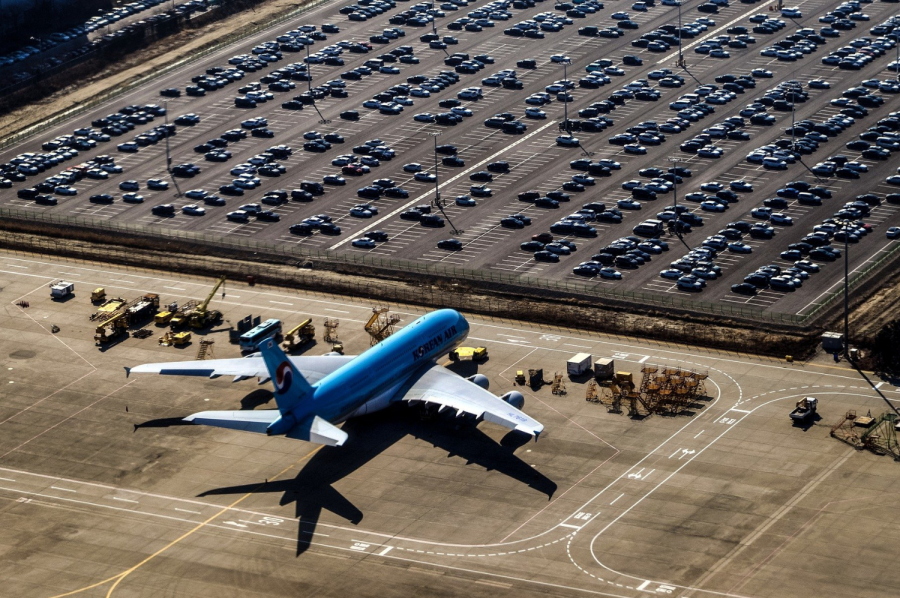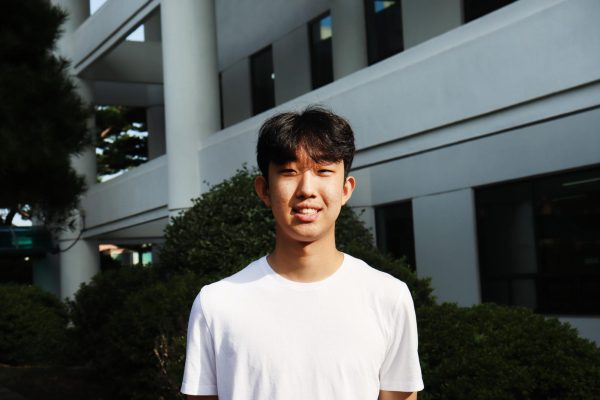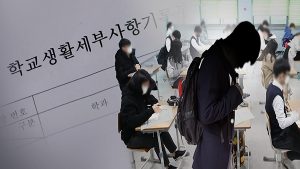Teachers encounter difficulties returning to campus amid rising Omicron cases
Jan 27, 2022
As SIS welcomed its students and staff back to campus on Jan. 20, teachers who remained in quarantine or abroad were unable to return to school for in-person classes.
Classes were virtual for the first 10 days of the second semester to accommodate students and teachers who traveled overseas during the winter break. Yet, a number of teachers who have faced difficulty arriving in Korea due to frequent flight cancellations have been forced to start quarantine later, thus delaying their return to campus.
“We were in Wisconsin during the break, so our flight path was from Madison to Dallas, and then Dallas to Seoul,” Jean Piscioneri, seventh-grade science teacher, said. “But when we got to the airport to check-in, the [airport receptionist] said that we had the flight leg from Madison to Dallas but not from Dallas to Seoul. American Airlines never reached out to us about the situation and moved us to another flight the next Friday.”
According to American Airlines, numerous problems have led to cancellations in domestic and international flights. With many airline employees testing positive for the highly-contagious Omicron strain, hundreds of US domestic flights have been put on a halt. The limited capacity within planes has further compounded the airline shortage issue, worsening bottlenecks in seat availability. These problems have been coupled with strict South Korean government mandates, which have put limits on the number of inbound flights from nations worldwide to limit the spread of the Omicron strain.
In addition to flight cancellations, a number of positive COVID-19 tests have also played a role in preventing teachers from returning to campus.
“My plane did not get canceled, but I had a positive COVID-19 test when I came back to Korea, so I am guessing that I must have caught it in the airplane or in the airport,” Ricky Green, high school PE teacher, said. “I should be back on Jan. 25, which will have been 10 days since the symptoms started.”
With the 10-day quarantine mandate still in effect until Feb. 3, many teachers who have arrived in Korea this past week will be unable to return to school until they produce a negative COVID-19 test. As a result, some students at SIS will have to continue with online classes for an extended period of time.
“I will not be back on campus until after the lunar break, so it is all virtual [teaching] from my perspective,” Jared Rock, English teacher, said. “I was in Spain over winter break and then got COVID-19, so I could not come back. Fortunately, the summatives we are doing in Communications and English 9 are all things that can easily be done online.”
For other teachers, however, many assessments that can only be done in a physical learning environment had to be pushed back, bringing new changes to the class-curriculum schedule.
“The minute I knew that I would be teaching from overseas, I planned the lesson in such a way that through Zoom, I could provide all the instructions to the students at home,” said Ms. Piscioneri. “By the time I get back, there will be a formative quiz so that I can give individual feedback to the students.”
While many teachers and students had hoped for a more normal school year rolling into 2022, rising COVID-19 cases in Korea have continued to negatively impact the school community at large. Frequent teacher absences because of quarantine policies have even affected extracurricular activities.
“I do think that there are many drawbacks to online learning and the fact that many teachers are still in quarantine or overseas,” Aaron Kim (10), JV boys basketball player, said. “For instance, on Saturday we had a JV basketball game, but our coach was unable to attend the game. Hopefully, everything gets better once teachers are able to return back to school and we continue to adjust to a new normal.”







